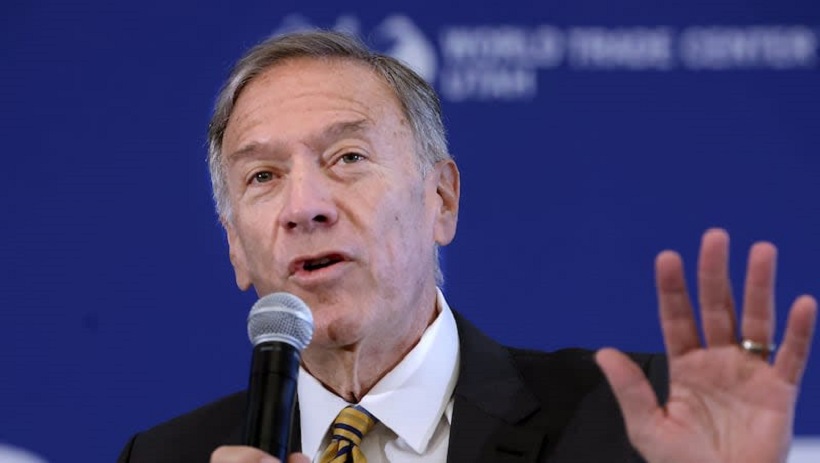Salt Lake City, UTAH — Former Utah Governor Gary Herbert and former U.S. Secretary of State Mike Pompeo took the stage Wednesday at the Crossroads of the World International Trade Summit, addressing a range of pressing global issues including trade policy, immigration reform, and international power dynamics.
The event, hosted in Salt Lake City and organized by Zions Bank in partnership with World Trade Center Utah, brought together global business leaders and policymakers to examine Utah’s expanding role on the international economic stage. Attendance at the summit was by invitation only.
Pompeo, who served as CIA Director and Secretary of State under President Donald Trump, expressed concern over the ongoing trade disputes and the use of tariffs as a negotiating tool. While affirming his support for Trump, Pompeo questioned the administration’s strategic clarity on the matter.
“President Trump hasn’t been clear about his overall strategic objective here,” Pompeo said, referring to the escalating tariff battles involving major global economies.
Herbert echoed concerns over economic uncertainty, but said Utah is uniquely positioned to weather the challenges due to its diversified economy and international partnerships. Still, he acknowledged that the lack of consistent federal policy makes long-term planning difficult.
The two leaders also addressed growing divisions within the Republican Party, particularly around economic issues. Herbert noted that while many Republicans remain loyal to Trump, there is a widening gap when it comes to specific policy approaches, especially on trade.
In addition to economic issues, Herbert and Pompeo discussed foreign policy, touching on relations with Israel, Russia, and China. The conversation also shifted to U.S. immigration policy, where both speakers criticized Congress for a lack of meaningful action.
“What happens, unfortunately, in my view, is we have too many in Congress setting aside solving a problem as a top priority to getting re-elected as the number one priority — and then they get re-elected, but the people suffer,” Herbert said.
On border security, Herbert emphasized the need for a “working door” — a secure border that also allows for legal and efficient entry into the United States. He defended Utah’s approach to immigration, citing the Utah Compact, a set of principles promoting compassionate and sensible immigration reform.
When asked whether Utah could be considered a sanctuary state, Herbert was direct: “Utah is not a sanctuary state.”
The former governor also highlighted current projects of the Herbert Institute, which he now leads. One of the institute’s primary focuses is researching the application of artificial intelligence in Utah’s business sector.
The summit concluded with a strong emphasis on the need for pragmatic leadership and continued dialogue in the face of global uncertainty — themes echoed by both Herbert and Pompeo as they reflected on the challenges ahead.

